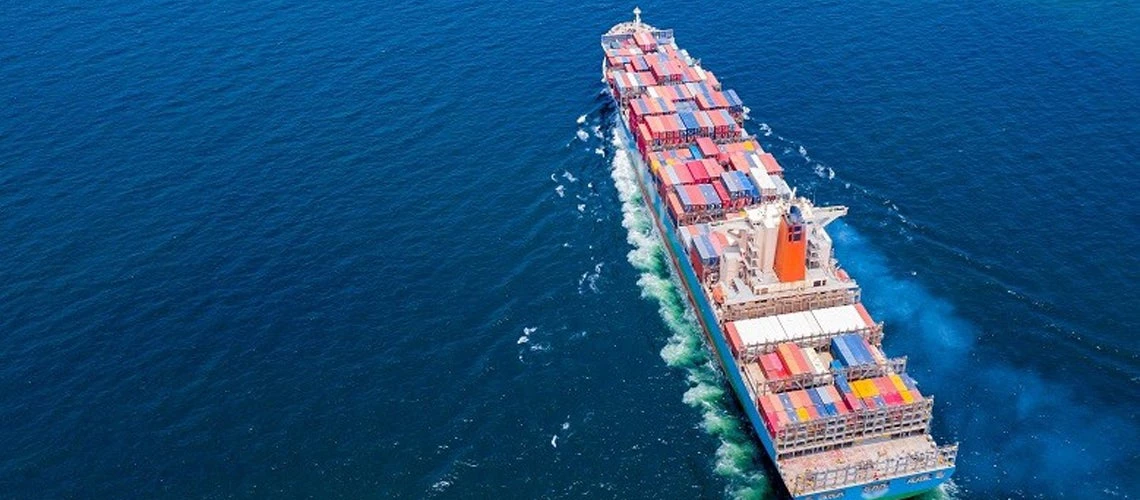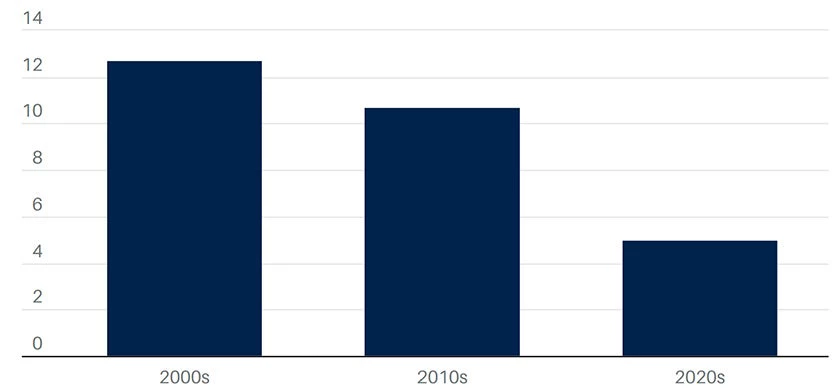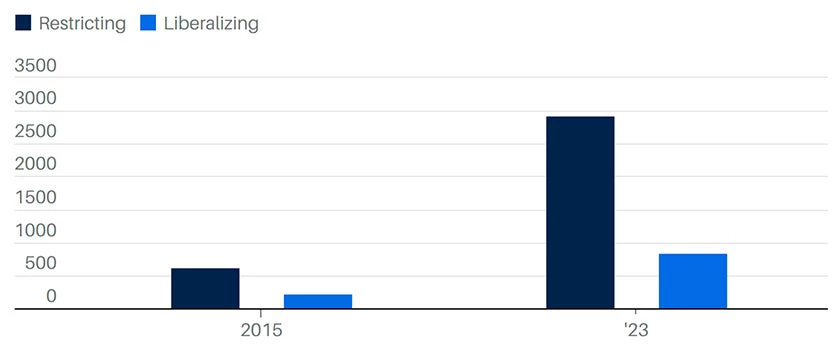 Cargo ships with full container receipts to import and export products worldwide
Cargo ships with full container receipts to import and export products worldwide
The World Trade Organization's (WTO) top decision-making body will have every reason to fret when it meets on February 26. International trade—a key engine of global prosperity since the fall of the Berlin Wall— has ground nearly to a halt and is set to remain anemic in the coming years. In 2023, trade in goods and services expanded by the slenderest of margins, an estimated 0.2 percent, the slowest pace in 50 years outside of global recessions. It would have declined outright but for the growth of trade in services. Trade in goods shrank roughly 2 percent, the sharpest contraction during this century outside of a global recession. Trade growth will improve this year but it will still be half the average rate in the decade before the pandemic. In fact, by the end of 2024, global trade will register the slowest half-decade of growth since the 1990s.
Global Trade Growth is Slowing
By the end of 2024, global trade will register the slowest half-decade of growth since the 1990s.
That is an ill omen for people's living standards everywhere. The rapid expansion of global trade after 1990 enabled one billion people to escape extreme poverty. It souped up growth in developing economies, enabling many of them to narrow the income gap with wealthier economies. During the first decade of this century, per-capita incomes in developing economies grew 3.5 percentage points faster than in developed economies. Trade also sped up the diffusion of technology, contributing to productivity growth across the world.
Yet memories are short. Today, misguided populism in many countries is doing serious damage to global trade. Many countries have lost their appetite for new trade agreements. In the 2020s so far, an average of just five agreements have been signed each year—less than half the rate of the 2000s. Their appetite for trade restrictions, meanwhile, seems insatiable. In 2023 nearly 3,000 trade restrictions were imposed across the world—roughly five times the number in 2015. Not surprisingly, the protracted weakness in trade has coincided with a pronounced slowdown in investment.
Regional Trade Agreements are on the Decline
Countries are losing their appetite for trade agreements.
What should be done? A good start for the global community would be to strengthen the rules-based international order. Policy makers should seek opportunities to reaffirm fundamental principles: the need to lower trade barriers, avoid distortive domestic policies, and build a broad and level playing field for international commerce. More specifically, they need to support the WTO to deliver on its mandate. Expectations for this month's WTO meeting are understandably modest, but it presents another important opportunity to advance the trade agenda.
At the national level, it's time for countries to ditch their infatuation with trade restrictions—their long-term costs are often much larger than the short-term benefits they might bring. Recent trade restrictions have shifted the pattern of interdependence among countries only slightly. For example, following the trade dispute between the United States and China, countries that witnessed faster export growth to the U.S. between 2017 and 2022 also saw significant growth in their imports from China. The main result of trade restrictions is usually higher prices because supply chains become longer and more complex than they otherwise would be.
Trade Restrictions are Surging
Countries are increasingly opting for trade restrictions, an ominous sign for global growth.
Benign-sounding ideas like "friend-shoring" and "near-shoring" also have the potential to be counterproductive. These policies may be motivated by understandable desires to protect supply chains. The reality is that diversified global supply chains are a source of resilience more than vulnerability. Over the longer term, efforts to curtail global supply chains are likely to weaken potential growth by limiting international technology diffusion, reducing efficiency, and raising costs. Policy makers impeding cross-border trade are shooting themselves in the foot.
It is time, moreover, for countries to resume efforts to expand trade agreements. Even in an uncertain global environment for trade, some countries were able to sign significant new agreements. The African Continental Free Trade Area, which took effect in May 2019 with 22 signatories, has since expanded to include 47 countries as of this month. This is the largest free-trade area by the number of participating countries. It has an ambitious goal: creating a single market for goods and services in the region.
Over the past year, the global economy has performed just well enough for governments—and consumers—to take the benefits of international trade for granted. A global recession was averted, largely because of the strength of the U.S. economy and a few large emerging economies. Yet global growth is projected to slow for the third year in a row. The major engines of the global economy— advanced economies and China—will experience weaker growth this year. Attacks on commercial vessels transiting the Red Sea and drought in Panama have disrupted two of the world's crucial shipping routes.
This blog is a repost from Barron’s, first published on February 21, 2024






Join the Conversation